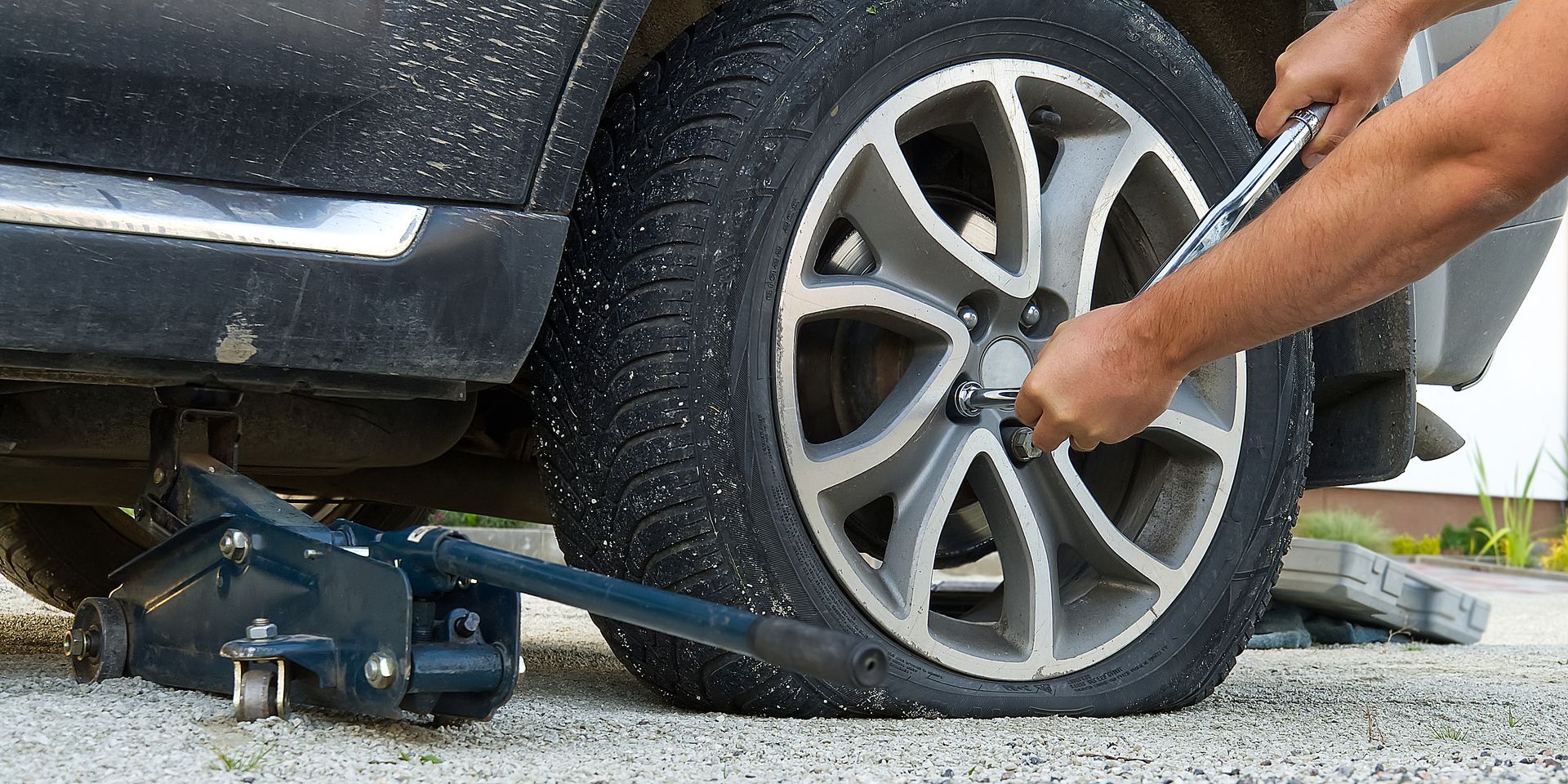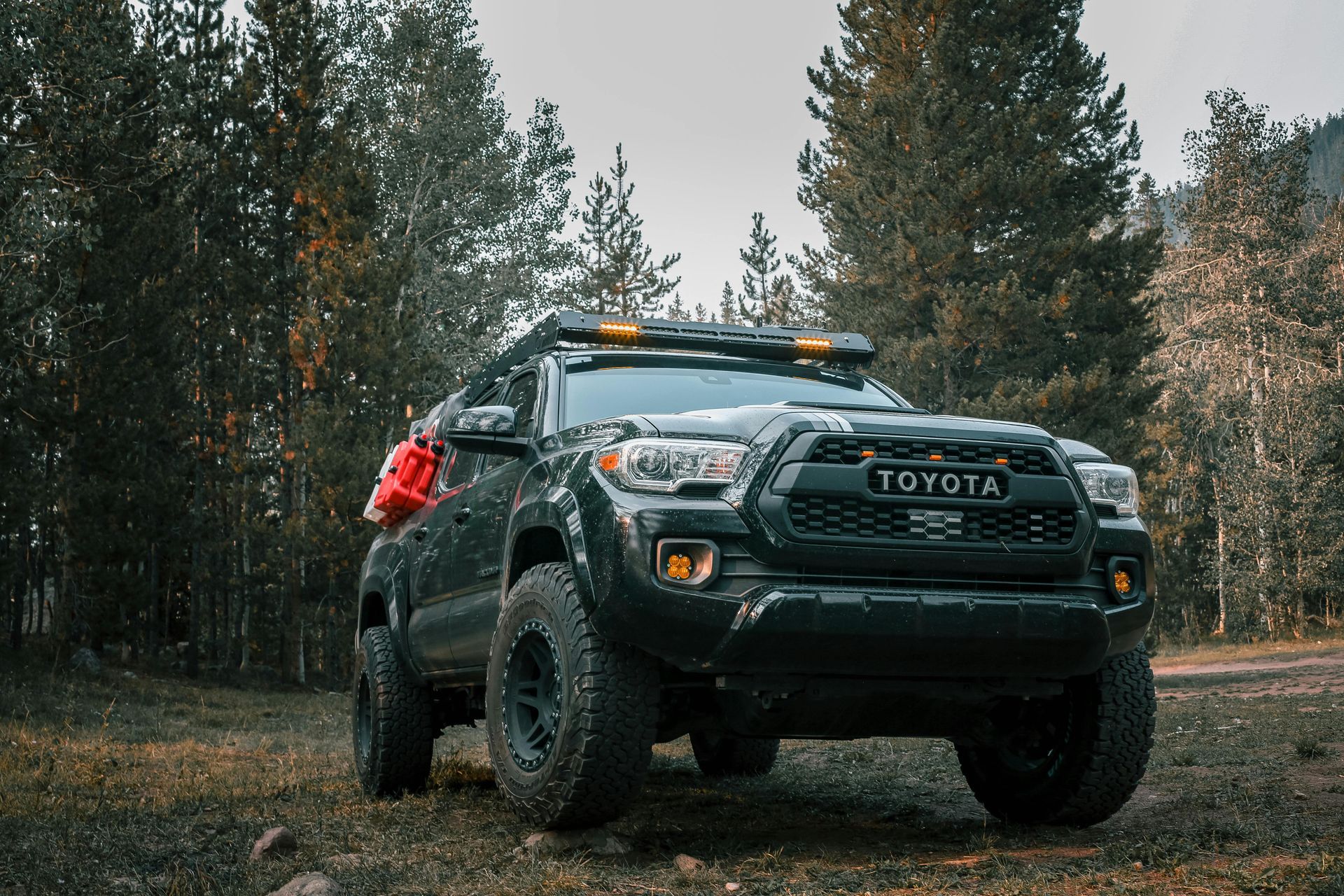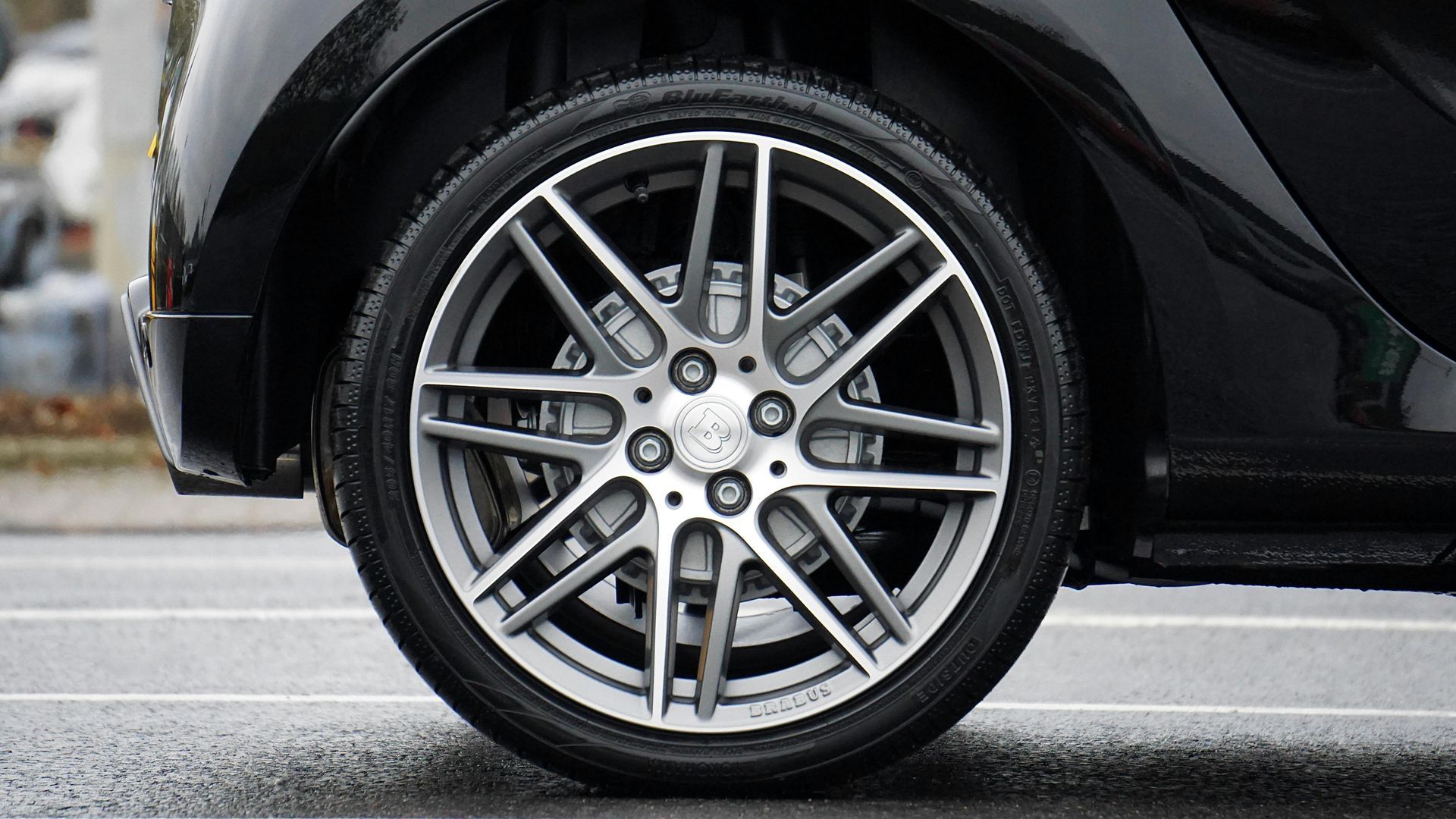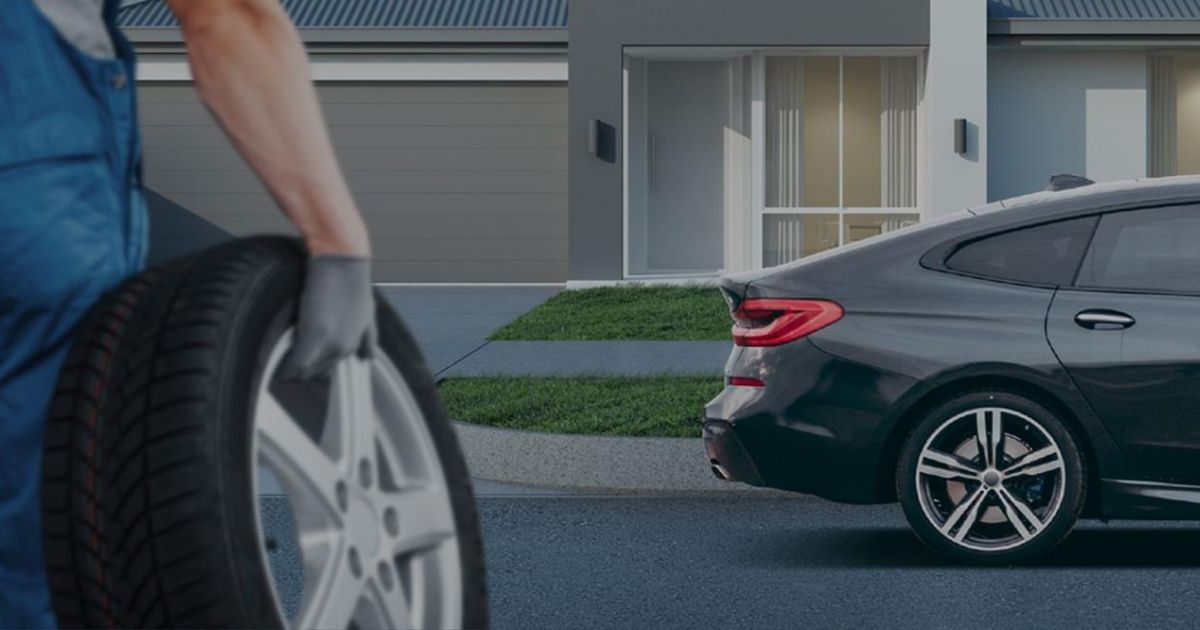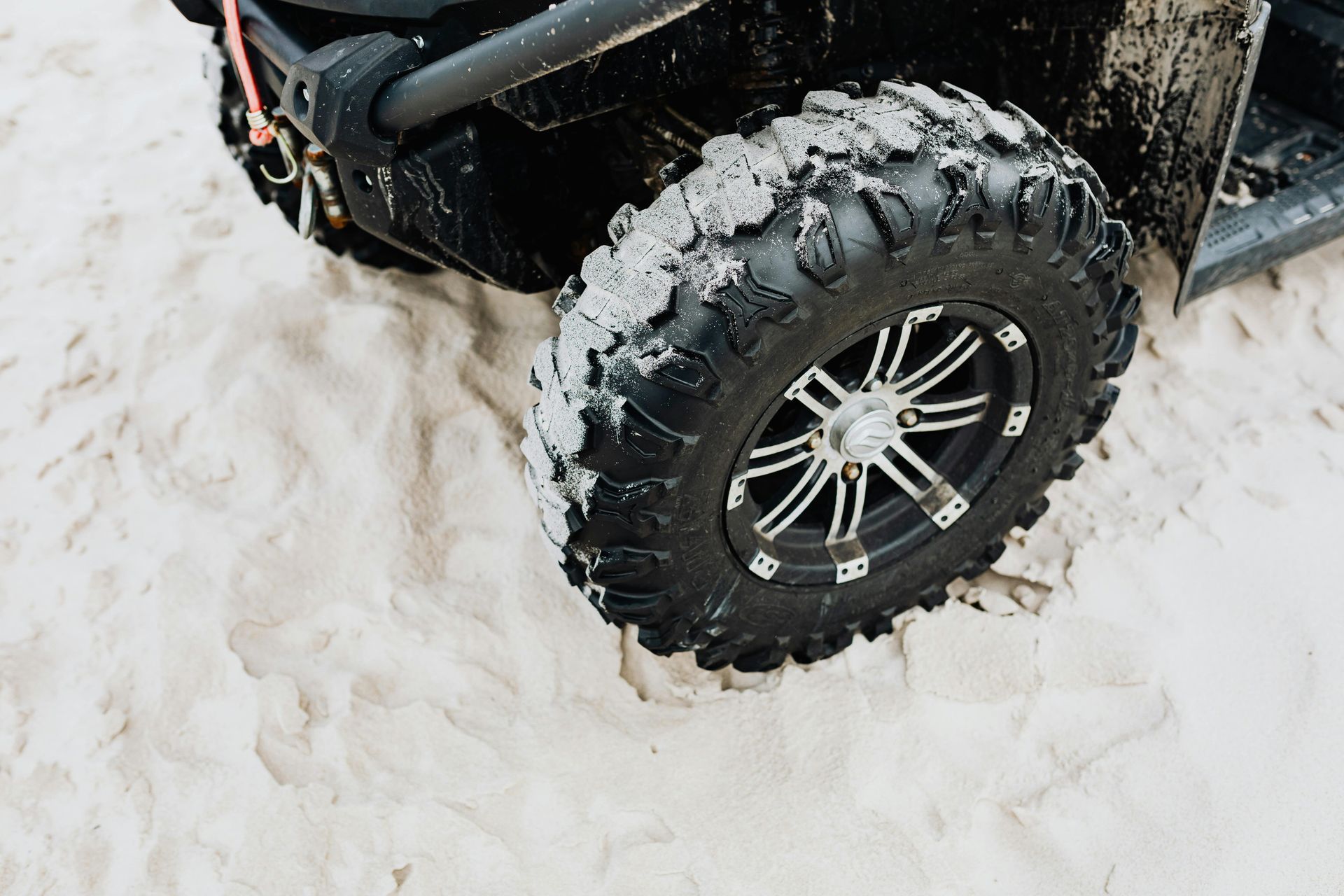Living in Phoenix, Arizona, presents unique challenges when it comes to choosing the right tires for your vehicle. The city's climate and driving conditions require careful consideration to ensure optimal performance and safety. This article will explore the necessity of all-season tires in Phoenix , analyzing factors such as the local climate, tire wear in Arizonian conditions , and the right tire options for Phoenix's dry weather. We'll also discuss the importance of regular tire maintenance and provide recommendations for Phoenix area drivers.
Key Takeaways:
- All-season tires are necessary in Phoenix due to the extreme heat, dry conditions, and rough road surfaces.
- Choosing the best all-season tires in Phoenix requires considering performance, durability, and affordability.
- Regular tire maintenance, including proper inflation and proactive measures, is essential for optimal tire performance.
- Consider all-season tire options that offer excellent traction, reduced road noise, and a comfortable ride.
- Be aware of any all-season tire deals in Phoenix to find affordable options without compromising quality.
Understanding Phoenix's Climate and Its Impact on Tires
Phoenix, Arizona has a hot desert climate, with extreme temperatures, low humidity, and minimal rainfall. These environmental conditions have a significant impact on tires, and it is crucial to understand how Phoenix's climate can affect tire performance.
The intense heat and dry conditions in Phoenix can cause tires to degrade faster. The high temperatures accelerate the wear and tear on the rubber, leading to reduced tread life. This not only affects the longevity of the tires but also compromises their performance and safety on the road.
Furthermore, the dry climate in Phoenix can cause tires to lose air quicker, leading to decreased fuel efficiency and an increased risk of blowouts. It is essential to regularly check and adjust tire pressure to maintain optimal performance.
Additionally, the lack of rainfall in Phoenix means that the roads often accumulate dust and debris, which can pose challenges for tire traction and handling. This can increase the risk of skidding and accidents, emphasizing the need for tires that can effectively navigate these conditions.
Considering these factors, it is essential to select tires that are specifically designed to withstand the harsh climate of Phoenix. By choosing tires that are suitable for the local conditions, you can ensure better safety, longer-lasting performance, and improved fuel efficiency.
Evaluating the Necessity of All-Season Tires in Phoenix
When considering the necessity of all-season tires in Phoenix , several factors need to be taken into account. Urban areas, such as Phoenix, require tires that can perform well in a variety of weather conditions throughout the year. All-season tires are designed to provide adequate traction and handling in both dry and wet road conditions. They are also capable of delivering acceptable performance on light snow-covered roads. For drivers who frequently take day trips to snow-prone regions, such as Flagstaff, all-season tires can offer the convenience of not having to change tires specifically for snowy conditions.
However, it is crucial to evaluate the frequency of snow in the Valley of the Sun. While Phoenix experiences minimal snowfall, there may be occasional snowstorms in the region. In such cases, all-season tires can provide sufficient traction on light snow, making them practical for most driving situations.
To further assess the necessity of all-season tires in Phoenix , it is essential to consider your specific needs and driving habits. If you primarily drive within the city and seldom encounter snowy conditions, all-season tires may be the most suitable option. They offer a good balance of traction, longevity, and year-round performance. However, if you frequently venture into snow-prone areas or require enhanced performance for spirited driving, you may want to consider dedicated winter tires or high-performance summer tires.
Making an informed decision about whether all-season tires are necessary for your specific needs in Phoenix requires weighing the versatility of all-season tires against the potential benefits offered by seasonal tires. By carefully evaluating these factors, you can ensure you have the right tires for the road conditions you're likely to encounter in Phoenix. At LugWrench Heroes we can make sure you get the right all season tires for the Phoenix, AZ metro weather.
Analyzing Tire Wear in Arizonian Conditions
Tire wear in Arizonian conditions is a significant concern for drivers in Phoenix. The combination of hot and dry weather , along with rough road conditions, can have a significant impact on the lifespan of your tires. Understanding the factors that contribute to tire wear in this region is crucial for maintaining optimal performance and safety.
One of the primary contributors to tire wear in Phoenix is the high temperatures. The scorching sun can cause the rubber in tires to deteriorate more rapidly, leading to tread loss and reduced grip. Additionally, the intense sunlight can cause sidewall cracking, further compromising the integrity of the tires.
The rough road conditions in Arizona also play a role in tire wear. The constant exposure to debris, potholes, and uneven surfaces can cause premature wearing of the tire tread. It's essential to be cautious and avoid hazardous road conditions whenever possible.
To mitigate tire wear in Arizonian conditions , there are several proactive measures you can take:
- Regularly inspect your tires: Routinely check your tires for signs of wear, such as uneven tread wear, bulges, or cracks. If you notice any irregularities, it may be time to replace your tires.
- Maintain proper tire inflation: Keeping your tires properly inflated is crucial for balanced wear. Underinflated tires can cause the edges to wear more quickly, while overinflated tires can lead to the center wearing down faster.
- Rotate your tires: Rotating your tires regularly ensures even wear across all four wheels. This practice can help extend the lifespan of your tires and improve overall performance.
- Drive defensively: Being cautious and avoiding road hazards can significantly reduce tire wear. Watch out for potholes, debris, and rough road surfaces that can cause damage to your tires.
By implementing these measures, you can prolong the life of your tires and maintain optimal performance in challenging Arizonian conditions. Regular tire maintenance and proactive care are integral to preserving the safety and efficiency of your vehicle.
Choosing the Right Tires for Phoenix's Dry Weather
When it comes to selecting the right tires for Phoenix's dry weather, there are a few key factors to consider. Whether you're looking for all-season tires or summer tires, it's important to choose high-performance options that can withstand the unique challenges of the Arizona climate. Additionally, understanding the tread life expectancy is crucial for ensuring the longevity and performance of your tires in Phoenix.
One of the main decisions you'll need to make is whether to opt for all-season tires or summer tires. While all-season tires provide versatility for different weather conditions, summer tires are specifically designed to enhance performance in dry and hot conditions. Summer tires typically offer better traction, handling, and braking capabilities, making them an excellent choice for Phoenix's dry weather.
High-performance tires are another option to consider for Phoenix's dry weather. These tires are specially engineered to deliver superior performance, offering enhanced grip, responsiveness, and cornering capabilities. They are designed to withstand the heat and provide optimal traction on dry roads, making them an excellent choice for sports cars and performance-oriented vehicles in Phoenix.
It's important to note that the tread life expectancy of tires can vary. In Phoenix's dry weather conditions, high temperatures and rough road surfaces can accelerate tire wear. Therefore, it's crucial to choose tires with a tread pattern and compound that are specifically formulated for durability in hot climates. Regularly monitoring the tread depth and rotating your tires can help maximize their lifespan and ensure optimal performance throughout their life cycle.
By considering these factors, including the choice between all-season tires and summer tires, the suitability of high-performance tires, and understanding the importance of tread life expectancy, you can make an informed decision when choosing the right tires for Phoenix's dry weather conditions.
Do You Need All-Season Tires in Phoenix?
When deciding whether to invest in all-season tires for your vehicle in Phoenix, several factors come into play. Understanding these factors can help you make an informed decision that suits your specific needs and budget.
Factors Influencing Tire Buying Decision:
- Climate: Phoenix's hot desert climate with high temperatures and low humidity can affect tire performance and longevity. Consider how extreme heat and dry conditions may impact your tires.
- Driving Conditions: Evaluate the typical road conditions you encounter in Phoenix. Are they rough or smooth? Potholes and debris can contribute to tire wear and damage.
- Usage Patterns: Think about your driving habits and the distances you cover. Do you frequently drive in snow-prone areas or take day trips to higher elevations where snow is more common?
- Budget: Assess your budget for tires. All-season tires may have a higher upfront cost, but they can provide year-round performance and potentially save you money in the long run.
- Personal Preferences: Consider your personal preferences for tire performance, such as handling, traction, and noise levels. Different tire types may provide varying levels of performance.
Cost-Benefit Analysis of All-Season Tires vs. Season-Specific Tires:
To determine the cost-effectiveness of all-season tires versus season-specific tires, weigh the benefits of each option against their costs. All-season tires offer convenience and versatility, allowing you to navigate different weather conditions throughout the year without changing tires. On the other hand, season-specific tires, like summer or winter tires, provide optimized performance in specific weather conditions but may require additional expenses for tire swapping and storage.
Myths and Realities of Tire Maintenance in Hot Climates:
Dispelling myths surrounding tire maintenance in hot climates is crucial for maintaining tire health and performance. Some common myths include:
- Myth: You don't need to check tire pressure regularly in hot climates.
- Reality: Tire pressure should be checked regularly in all climates, including hot ones. Extreme heat affects tire pressure, and underinflated or overinflated tires can impact safety and fuel efficiency.
- Myth: Tire rotation is not necessary in hot climates.
- Reality: Regular tire rotation helps distribute the wear evenly among all tires, increasing their lifespan regardless of the climate.
- Myth: Tire maintenance can be skipped in hot climates as long as the tires look okay.
- Reality: Regular tire inspections, including checking for tread wear, cracks, bulges, and other signs of damage, are essential for safety and maintaining optimal performance.
By considering these factors, conducting a cost-benefit analysis, and understanding the realities of tire maintenance in hot climates, you can make an educated decision on whether all-season tires are the right choice for your vehicle in Phoenix.
All Season Tire Options and Recommendations for Phoenix Drivers
When it comes to finding the best all-season tires for your vehicle in Phoenix, you have a range of options to choose from. These tires are designed to provide excellent performance, durability, and versatility, making them suitable for the unique driving conditions of the city. Whether you're commuting within Phoenix or embarking on day trips to nearby areas, having the right all-season tires is crucial for your safety and comfort on the road.
Here are some top all-season tire options for Phoenix:
- Michelin Defender T + H: Known for its exceptional tread life and fuel efficiency, the Michelin Defender T + H offers excellent traction and handling in dry and wet conditions, making it an ideal choice for Phoenix's climate.
- Continental TrueContact Tour: The Continental TrueContact Tour is engineered with advanced compounds and tread patterns to provide superior grip and handling on both dry and wet surfaces. It also offers reduced rolling resistance for increased fuel efficiency.
- Goodyear Assurance WeatherReady: Designed to handle various weather conditions, including light snow, the Goodyear Assurance WeatherReady provides reliable traction and responsive handling. It also features a durable tread compound for extended tread life.
- Bridgestone Turanza QuietTrack: Offering a smooth and quiet ride, the Bridgestone Turanza QuietTrack is designed with advanced technology to reduce road noise and provide excellent traction on dry and wet surfaces. Its durable construction ensures long-lasting performance.
- Pirelli Cinturato P7 All Season Plus: The Pirelli Cinturato P7 All Season Plus delivers a comfortable and quiet ride without compromising on performance. With its exceptional grip and handling, it is well-suited for the dry weather of Phoenix.
When choosing the right all-season tire for your vehicle, it's important to consider factors such as performance, durability, and affordability. Depending on your driving needs and budget, you can make an informed decision that ensures optimal performance and safety on the roads of Phoenix.
Importance of Regular Tire Maintenance Regardless of Season
Proper tire maintenance is crucial for the longevity and optimal performance of your tires, no matter the season. By following these tire maintenance tips , you can ensure a safe and smooth driving experience in Arizona.
1. Proper Tire Inflation: Maintaining the correct tire pressure is essential. Underinflated tires can lead to increased wear and reduced fuel efficiency, while overinflated tires can result in poor handling and a harsher ride. Regularly check your tire pressure and inflate them to the recommended level indicated in your vehicle's owner's manual or on the sticker inside the driver's side door.
2. Signs of Tire Damage and Wear: Inspect your tires regularly for any signs of damage or wear. Look for bulges, cracks, or cuts on the sidewalls, as well as uneven tread wear. If you notice any of these signs, it is important to have your tires inspected by a professional to assess the extent of the damage and determine if they need to be replaced.
3. Proactive Measures for Preventing Tire Issues: Taking proactive measures can help prevent tire issues before they occur. Avoid driving over potholes, curbs, or other road hazards that can cause damage to your tires. Rotate your tires regularly to promote even wear and extend their lifespan. Additionally, ensure proper wheel alignment and balancing to prevent uneven wear and maximize tire performance.
To visually illustrate the importance of tire maintenance, here is an image:
By following these tire maintenance practices, you can protect your investment and ensure the safety and performance of your vehicle's tires in any season. Remember to consult your vehicle's owner's manual and seek professional assistance when necessary.
Conclusion
After considering the unique climate and driving conditions in Phoenix, it is clear that all-season tires are a suitable choice for most drivers in the area. The hot desert climate, with its high temperatures and dry conditions, can cause significant wear on tires, reducing tread life and potentially compromising safety. All-season tires offer the versatility and durability needed to withstand these challenging conditions and provide adequate performance throughout the year.
However, it is important for Phoenix area drivers to carefully assess their specific needs and preferences when choosing tires. Factors such as driving habits, budget, and desired performance can influence the final decision. For those who frequently venture into snow-prone regions or prioritize high-performance, specialized tires may be a better option.
Our final recommendations for Phoenix area drivers are to opt for high-quality all-season tires that are specifically designed for hot climates. Look for tires with enhanced heat resistance, excellent traction on dry and wet roads, and extended tread life. Regular tire maintenance, including proper inflation and regular inspections, is crucial for ensuring optimal tire performance and longevity, regardless of the season.
By carefully considering these recommendations and choosing the right all-season tires for your vehicle in Phoenix, you can confidently navigate the city's roads with improved safety and performance. Remember to consult with a reputable tire professional who can provide expert advice based on your specific driving needs, ensuring you make an informed decision.
FAQ
Do I need all-season tires in Phoenix?
Yes, all-season tires are highly recommended for driving in Phoenix's hot desert climate.
How does Phoenix's climate impact tires?
The high temperatures and dry conditions in Phoenix can cause tires to degrade faster, reducing their tread life and potentially compromising safety.
Are all-season tires necessary for urban driving in Phoenix?
Yes, all-season tires are necessary for urban driving in Phoenix due to the city's hot and dry weather.
Should I consider all-season tires for day trips to snow-prone regions?
If you frequently take day trips to snow-prone regions, it's recommended to consider all-season tires for added traction and safety.
How often does it snow in Phoenix?
Snow is rare in Phoenix, making all-season tires a suitable choice for most driving scenarios in the city.
What factors contribute to tire wear in Arizona?
Factors such as high temperatures, intense sunlight, and rough road conditions can contribute to accelerated tire wear in Arizona.
What tire options are suitable for Phoenix's dry weather?
All-season tires and summer tires are suitable options for Phoenix's dry weather. High-performance tires are also recommended for optimal performance in the heat.
Are all-season tires necessary in Phoenix?
The decision to choose all-season tires depends on factors such as your driving needs, budget, and personal preference. It's important to consider the benefits and drawbacks of all-season tires versus season-specific tires.
What are some highly recommended all-season tire options for Phoenix?
Some highly recommended all-season tire options for Phoenix include [insert tire brands and models]. These tires offer a combination of performance, durability, and affordability.
How can I maintain my tires in Arizona's hot climate?
Proper tire maintenance, such as regular inflation checks, monitoring for signs of damage and wear specific to Arizona, and practicing proactive measures, can help prolong tire life and ensure optimal performance.
What are the final recommendations for choosing tires in Phoenix?
Based on the climate, driving conditions, and other factors discussed, it's recommended to choose all-season tires that offer a balance of performance, durability, and affordability. Regular tire maintenance is also crucial for maximizing tire life and safety.
